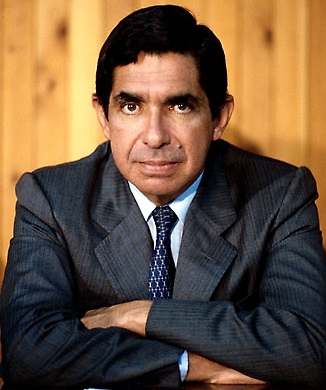
Publisher:
Bonnie King
CONTACT:
Newsroom@Salem-news.com
Advertising:
Adsales@Salem-news.com

~Truth~
~Justice~
~Peace~
TJP
Oct-07-2007 21:17

 TweetFollow @OregonNews
TweetFollow @OregonNews
Costa Rica's Economic Future With U.S. Hinges on Vote
Tim King Salem-News.comCosta Rican President Oscar Arias Sanchez says passage is critical to his country's $21.5 billion economy, according to initial results.
 Costa Rican President Oscar Arias Sanchez Photo courtesy: britannica.com |
(SALEM, Ore.) - Costa Rica's citizens exercised their sovereign right Sunday to vote on a free trade agreement with the United States.
The White House says this trade agreement, which has been approved by the United States Congress and entered into force for all other participating countries, would expand Costa Rica's access to the U.S. market, safeguard that access under international law, attract U.S. and other investment, and link Costa Rica to some of the most dynamic economies of our Hemisphere.
The proposed treaty would create a free trade area covering the United States and Central America, opening local markets to U.S. products.
Reports indicate that voters in Costa Rica are narrowly backing the free trade deal with the U.S., based on partial referendum results released today.
But a poll published in the local daily newspaper "La Nacion" on October 3rd showed a different trend, indicating 55 percent of Costa Ricans polled would vote against the free trade agreement, and 43 percent in favor.
Out of 73 percent of votes counted, just over 50 percent of voters said yes to the agreement against 47.5 percent who voted no, the Supreme Electoral Tribunal said. Turnout was around 60 percent.
If the small, relatively rich nation accepts it, the Central American Free Trade Agreement will but also boost Costa Rican exports to the United States.
Acknowledging that there is confusion over the issue, the Bush White House issued this statement: "If the free trade agreement is rejected, the United States will not renegotiate the agreement signed by the Government of Costa Rica as it is part of an agreement with a broad group of Central American countries. The United States has never renegotiated a free trade agreement that has been approved by the Congress."
The statement goes on to say that, "With respect to trade preferences provided under the Caribbean Basin Initiative which will expire in September 2008, the United States has never before confronted the question of extending unilateral trade preferences to a country that has rejected a reciprocal trade agreement."
The White House cautions that voters in Costa Rica should be aware that many of those assuring Costa Rica of continued access to the U.S. market have consistently opposed measures that would open the U.S. market to goods from Costa Rica and other countries, whether through trade agreements or through trade preference programs.
Costa Rican President Oscar Arias Sanchez says passage is critical to his country's $21.5 billion economy, according to initial results.
The latest posted results according to Bloomberg, has 60 percent of the votes counted, with 51.6% of voters backing the accord.
If the Central American Free-Trade Agreement were to be rejected, it would mark the first time an American free-trade deal has been refused. The accord has already been approved by four other Central American nations.
Articles for October 6, 2007 | Articles for October 7, 2007 | Articles for October 8, 2007

googlec507860f6901db00.html
Salem-News.com:



Terms of Service | Privacy Policy
All comments and messages are approved by people and self promotional links or unacceptable comments are denied.
[Return to Top]
©2025 Salem-News.com. All opinions expressed in this article are those of the author and do not necessarily reflect those of Salem-News.com.